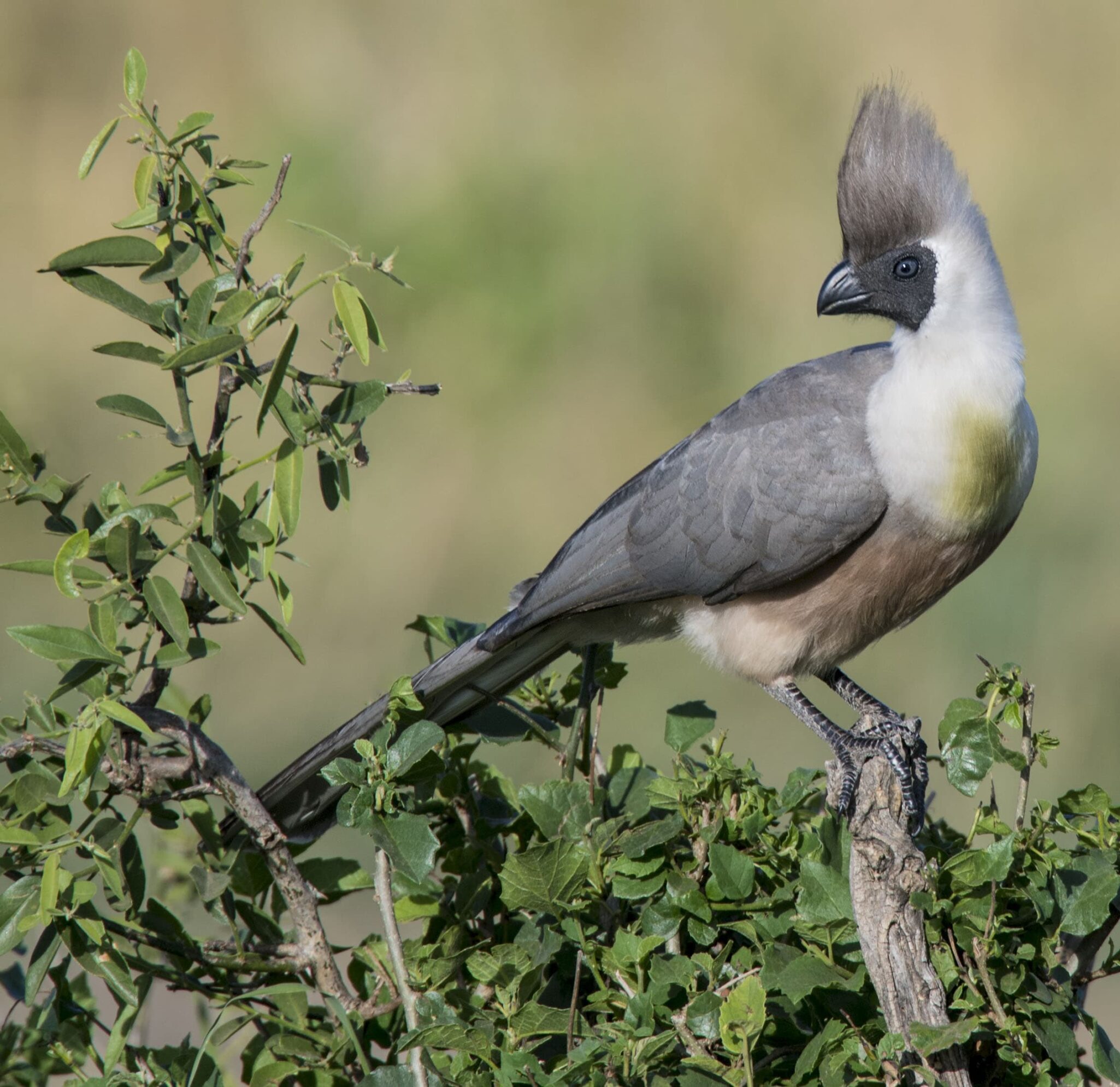
There are over 10,000 species of birds in the world – that’s a lot of different names to come up with. It makes sense that every now and again we’ll come across those with more than just a flair for the obscure. Each of today’s birds carries a distinctive name that simply needs to be celebrated.
Many birds earn their names from their song or call, as that will usually be the first indication they exist; others are determined by their plumage, while others still are named for their behavior, or even after the person who claims to be the first to have seen them. And then there are those whose names bring forth a giggle or at least a raised eyebrow when you first hear them. Owen has ventured far and wide in his time as a bird photographer, and on some of those journeys, he has been blessed to be in the company of birds with simply amazing names.
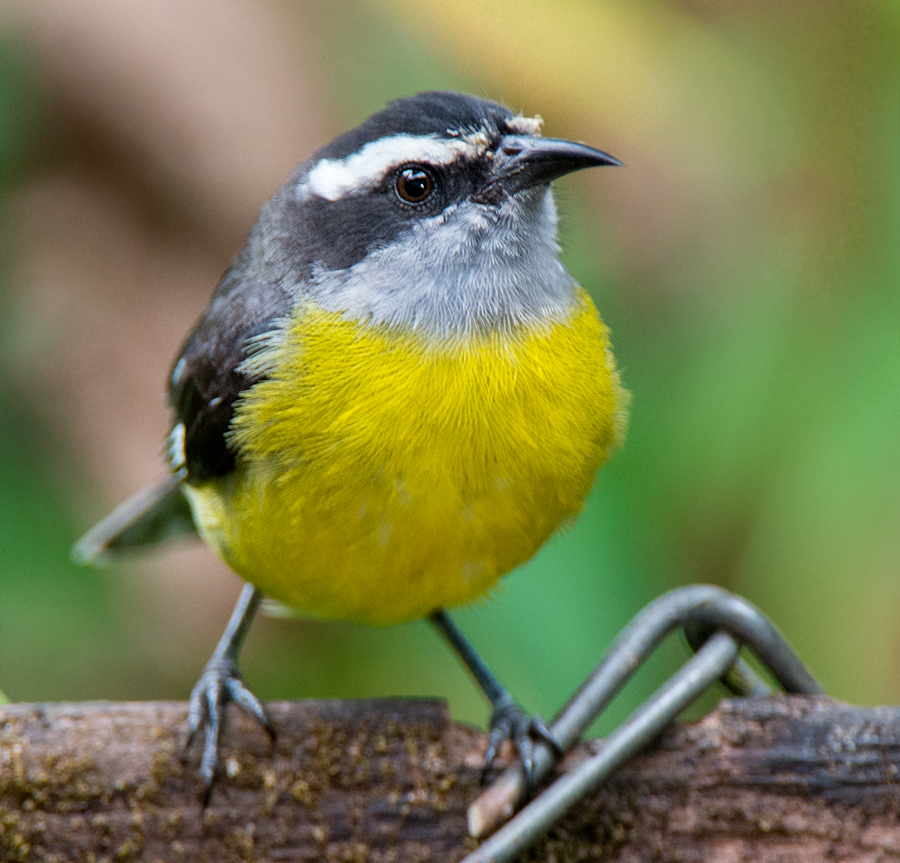
Bananaquit
This is not a public information broadcast warning against the perils of eating yellow-curved fruit. This is the name of a tiny, colorful bird native to the Caribbean and Central and South America. The first part of its name is linked to its diet and also to its overriding color, yellow, and the English word quit for the latter half refers to these birds’ ability to remain quiet and still. Bananaquits are renowned for their love of nectar, particularly from flowers, fruits, and especially bananas. They use the sharpness of their slender, curved beaks to pierce fruit and flowers from the side and consume the sugary liquid inside, a technique known as nectar robbing. In Trinidad and Tobago, the Bananaquit is seen as a symbol of resilience and adaptability, as it has thrived in a variety of environments.
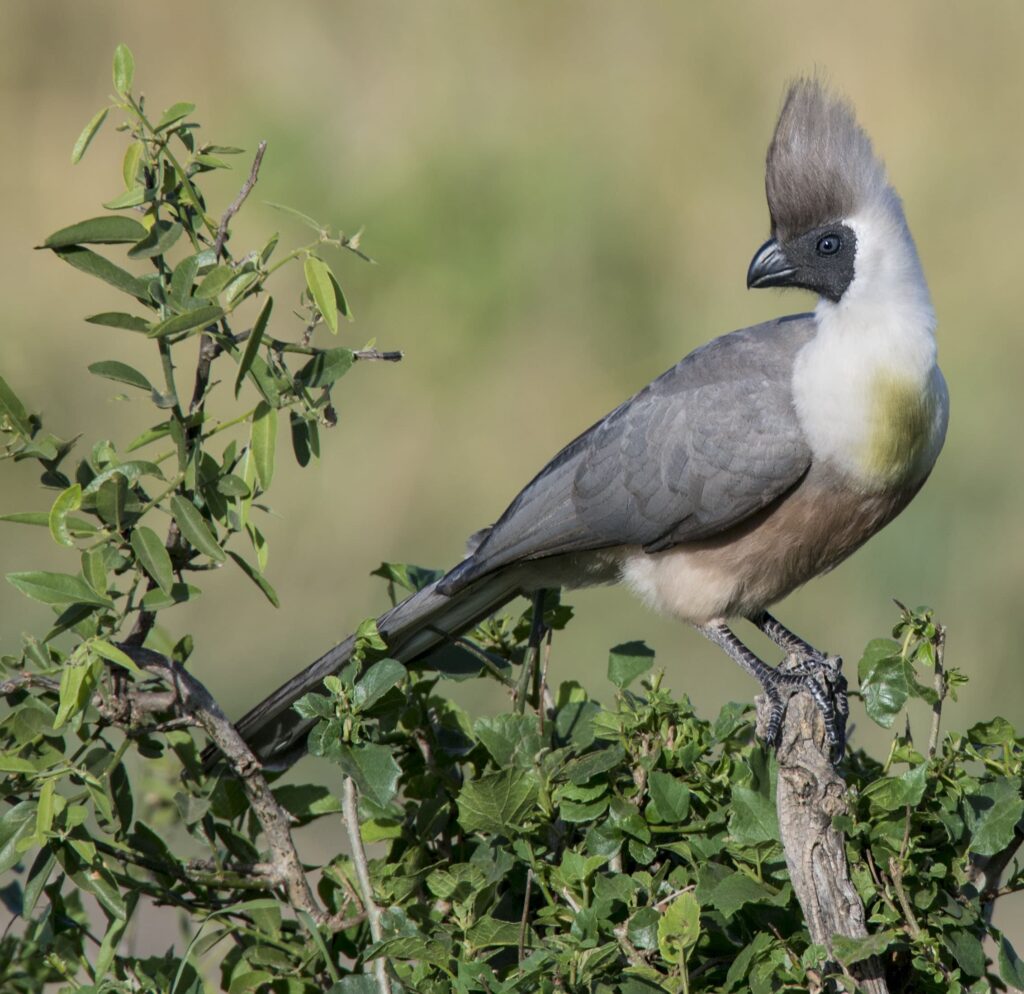
Bare-Faced Go-Away Bird
Despite being members of the turaco family, a group of birds renowned for their vibrant green plumage and their ability to create their own pigment, turacin, these birds are actually smoky gray and brown with distinctive crests, and in this species, a striking black face devoid of feathers. Whilst unable to fly well, they are excellent climbers, and can scale their preferred food source of the acacia, Mopane and Jackal berry trees of Africa in seconds. The name is based on their alarm call, a nasal, rather disdainful-sounding “g’wa-ay, g’wa-ay.” It is a loud call, and often emitted at the slightest hint of danger, which many other species of birds benefit from.
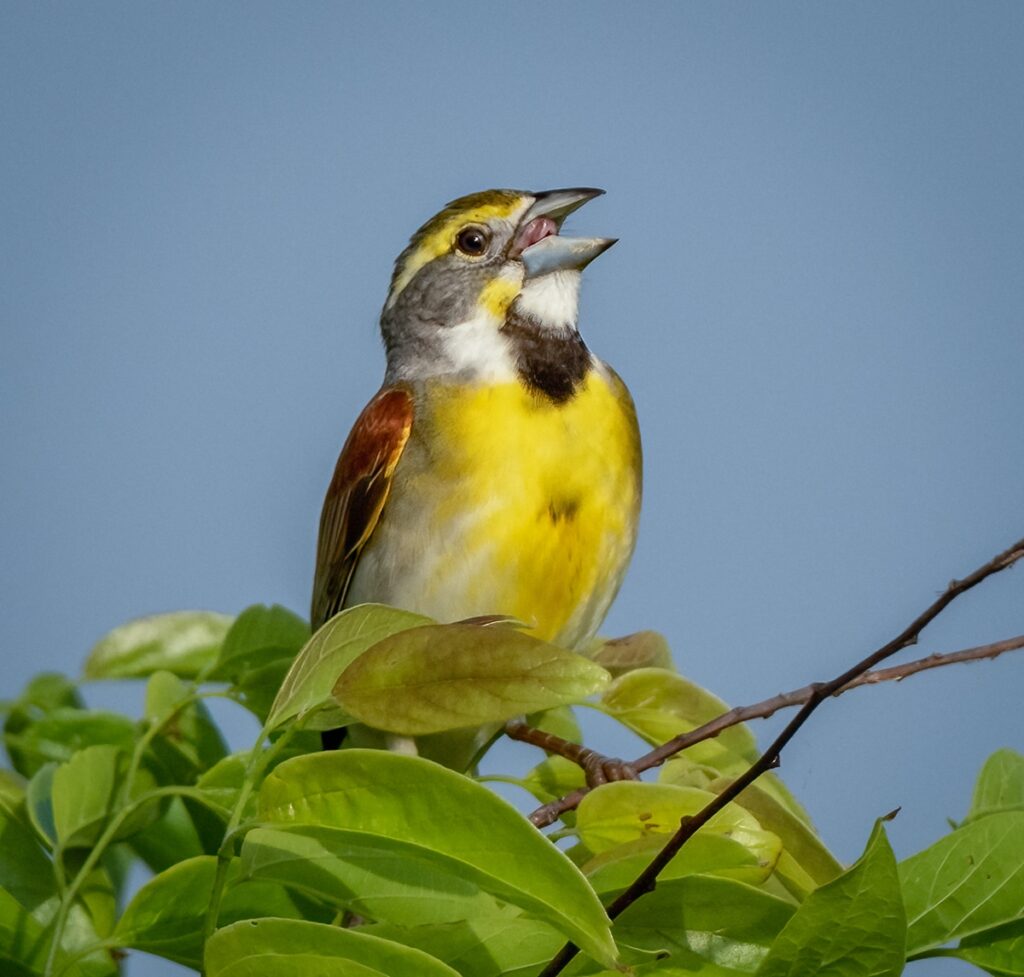
Dickcissel
Dickcissels are songbirds native to North and Central America whose name is rooted in their distinctive song. Its call sounds like “dick, dick, ciss, ciss,” – what else would one call it? Being one of the migratory birds who arrive last, the dickcissel’s song is a quintessential sound of the Midwestern American prairies during the summer months when it arrives sometimes as late as June, before it heads back to Central America, Colombia, and Venezuela. The robust, cone-shaped bill gives it away as a distant relative to finches and sparrows – fellow predominant seedeaters.
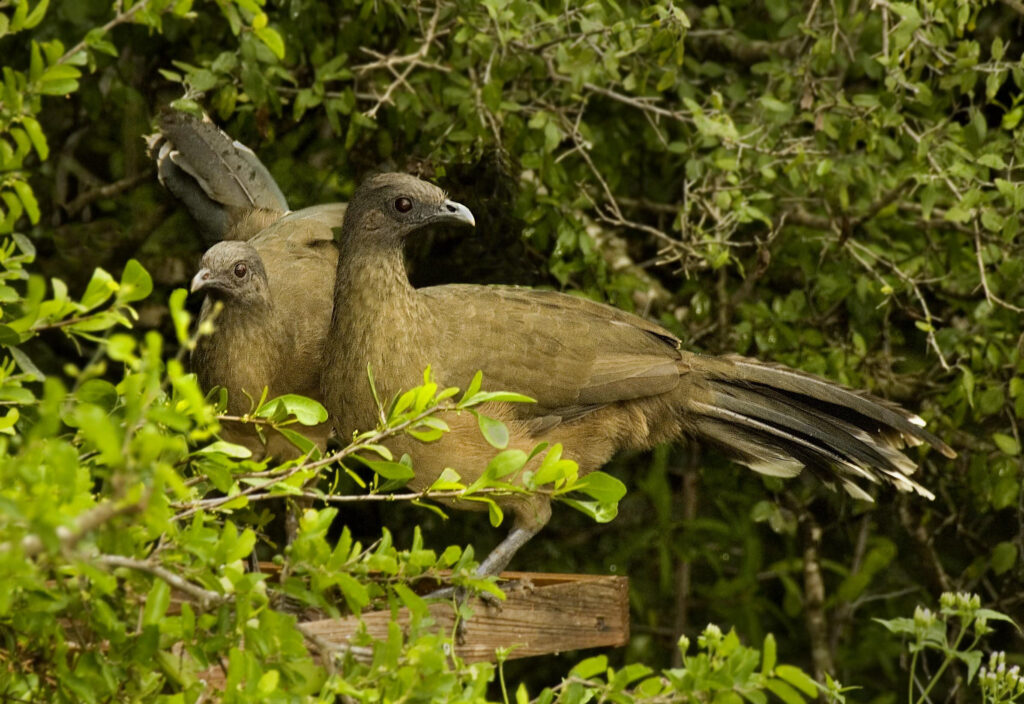
Chachalaca
Chachalacas are medium-sized birds native to the tropical forests of the Americas, with species found from southern Texas to Argentina. Their name is an onomatopoeic reflection of their raucous calls, often heard in the early morning, earning them the name “alarm clocks” of the jungle. They are not often fearful of humans as over the centuries we have chosen not to eat them as much as other birds due to their smaller size, around 50cm tall. However, their fondness for agricultural crops such as tomatoes, melons, beans, and radishes does put them in many people’s bad books, so it could be said that they have gotten off lightly so far.
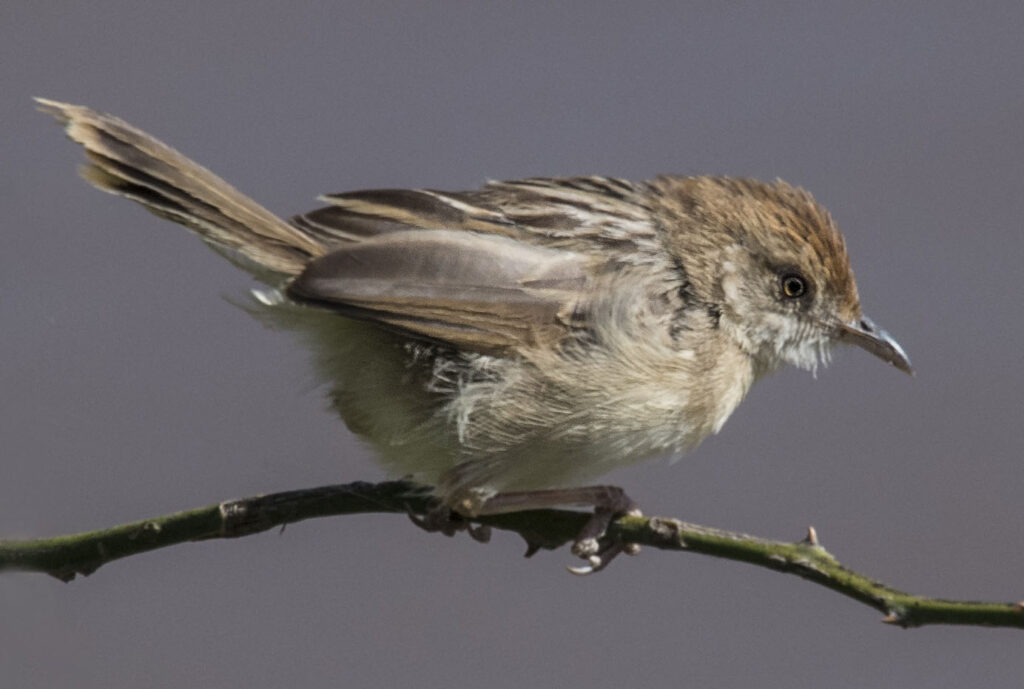
Rattling Cisticola
These small, brown-streaked birds can be found in grasslands and wetlands across sub-Saharan Africa, often perched atop shrubs and trees where they call out their names. The second half of their name cisticola comes from the Ancient Greek ‘kisthos’ meaning rock-rose and the Latin ‘colere’, to dwell. The rattling part comes from their distinctive, high-pitched “cheecheechichichirrr” call, which resembles the sound of a snare drum. Not to be outdone, other members of the cisticola family have similarly descriptive first names: Churring, Chirping, Zitting, Singing, Whistling, Trilling, Bubbling, Wailing, Tinkling, Croaking, Winding, and Siffling.


